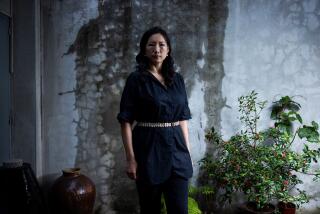Valery Gergiev confronts terror with Brahms in a Palmyra temple
- Share via
It was in many ways a typical performance on Thursday for the Russian conductor Valery Gergiev and his Mariinsky Theatre Orchestra -- impassioned, precise yet bursting with primal energy. It even featured an appearance of the maestro’s trademark fluttering right hand.
But it was the venue, the majestic Roman theater in the ancient Syrian city of Palmyra, that made the concert a special one: Less than a year ago, the very same ground where the orchestra now played had run red with the blood of dozens of Syrian soldiers slaughtered by the extremist group Islamic State.
Last month, troops loyal to Syrian President Bashar Assad drove jihadists out of the nearly 4,000-year-old city after weeks of battles and a barrage of airstrikes from Russian warplanes.
But that grueling fight appeared to be a distant memory on Thursday, as a solitary violinist, donning a white cap against the intense desert sun, played the grieving, discordant strains of Johann Sebastian Bach’s “Chaconne for Solo Violin.”
An audience of bemused Syrian soldiers, stern-looking Russian military advisors in wrap-around sunglasses, United Nations representatives and government functionaries sat in the shadow of the ancient Roman theater’s crumbling columns.
Held in the run-up to Victory Day, the May 9 Russian holiday that commemorates the surrender of Nazi Germany to the former Soviet Union, the performance appeared to cast the campaign against Islamic extremists in Syria in the same lineage as the Great Patriotic War.
“Here on this great stage, our concert in Palmyra is our appeal for everyone to come to peace and unity, to unite and work against this evil, against terrorism,” said Gergiev, who is a close friend of Russian President Vladimir Putin and is also music director of the Munich Philharmonic Orchestra.
He formerly served as principal conductor of the London Symphony Orchestra.
“We protest against barbarians who destroyed wonderful monuments of world culture. We protest against the execution of people here on this great stage.”
Some of Palmyra’s most important historic structures, including the Arch of Triumph and the Temple of Bal, were destroyed or damaged during Islamic State’s 10-month occupation of the city.
Khaled Asaad, the 81-year-old Syrian archeologist who was head of antiquities for the city, was publicly beheaded in August 2015.
Putin, speaking via live video link from the southern Russian city of Sochi, said the concert was “as an expression of gratitude” for those who “fight against terrorism without sparing their own lives.”
The Russian government has portrayed its military campaign in Syria as part of a greater fight against terrorist groups in general, and especially Islamic State.
But Russian forces have also targeted opposition groups — some supported by the United States — which are fighting to wrest control of the country from the Assad government.
Thursday’s concert also included an extract from the Russian opera “Not Love Alone,” as well as Sergei Prokofiev’s “Classical” symphony, a work that Gergiev said represented “a lot of optimism and hope.”
But it proved to be a short interlude to the violence that continued to flare across the country, despite the renewed commitment to a purported cessation of hostilities brokered by the United States and Russia.
The same day, 12 people were killed and at least 40 injured after two bombings struck a city in the countryside areas of Homs, according to the Syrian state news operator, SANA.
Meanwhile, a pro-opposition monitor, the Syrian Observatory for Human Rights, said at least 28 people were killed after an airstrike struck a refugee camp near the town of Sarmada, about 140 miles northwest of Palmyra.
Gergiev said he chose Bach’s melancholy piece to express the “greatness of human spirit, and I think it is appropriate to play it today, here.”
“It’s very difficult to speak about emotions with you,” he told the small audience assembled in the golden glow of the temple. “In the music you will hear today, you’ll hear our pain and our memory.”
Twitter: @nabihbulos
More to Read
Sign up for Essential California
The most important California stories and recommendations in your inbox every morning.
You may occasionally receive promotional content from the Los Angeles Times.














